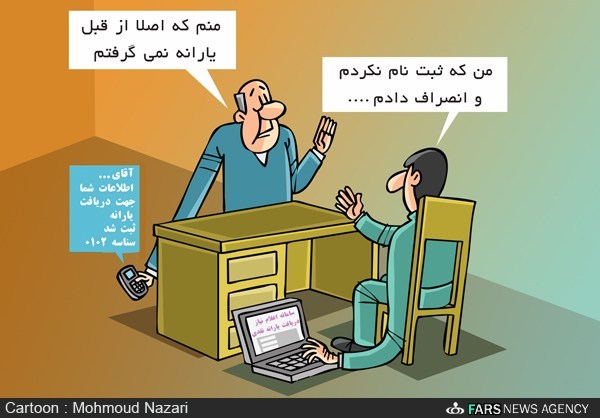LATEST: IAEA — Iran Complying With Interim Nuclear Agreement and Reducing 20% Uranium Stock
Experts from Iran and the 5+1 Powers will meet in New York from May 5-9, ahead of the next high-level negotiations on a comprehensive nuclear deal.
Discussions are expected on technical and financial aspects of an agreement, including Iran’s enrichment of uranium, the status of Tehran’s nuclear facilities, inspection and supervision arrangements, and the timing of the lifting of US-led sanctions.
Iran and the 5+1 Powers (US, Britain, Germany, France, Russia, and China) hold their fourth round of talks on a comprehensive settlement in Vienna on May 13. Both sides said at the conclusion of the last round this month that discussions were “constructive”, but much remained to be done to reach an agreement by July 20, when an interim deal expires.
IAEA: Iran Complying With Interim Nuclear Agreement and Reducing 20% Uranium Stock
The International Atomic Energy Agency is disseminating a report that Iran is complying with last November’s interim nuclear agreement and reducing its stock of 20% enriched uranium.
Since summer 2013, Iran has been limiting its 20% stock by converting almost half of it into oxide power, which cannot be used in a militarized nuclear program.
In the November deal with the 5+1 Powers, Iran agreed formally to suspend enrichment to 20%, while converting much of the remaining stock to oxide powder or diluting it to 5%.
The IAEA said Iran has now diluted half the stockpile of 20% enriched uranium to 5%, with more than half the remaining stockpile now oxide powder.
Iran has now diluted or converted almost 155 kg (340 pounds) of uranium gas, which totaled 209 kg when the deal came into force.
Experts say about 250 kg of 20% uranium could potentially be refined to more than 90% for a single bomb.
The IAEA report also pointed to a new delay in Iran’s construction of a plant designed to turn low-enriched uranium gas (LEU) into an oxide powder that is not suitable for further processing into highly-enriched bomb-grade uranium.
Iran said that a site to produce oxide powder, due for commissioning on April 9, has been delayed. However, it “indicated to the agency that this will not have an adverse impact on the implementation of (its) undertaking” to convert the 20% uranium.
Following the report, the US confirmed the release of another installment of $450 million of frozen Iranian funds.
The 5+1 Powers agreed in the interim deal, which came into effect on January 20, that $4.5 billion in frozen assets would be released over the next six months.
Government Struggling to Introduce Next Phase of Subsidy Cuts
The Government is fighting to introduce the second phase of subsidy cuts, with criticism of the limitation of support payments and warnings of a spike in prices.
Government officials have said that the system, introduced by Mahmoud Ahmadinejad in December 2010, must be modified because costs far exceed revenues. They accuse the previous administration of mismanagement of the cuts in subsidies for items like food and energy, accompanied by a payment of about $18 per month to each Iranian to cover higher prices.
Senior Presidential advisor Mohammad Baqer Nobakht insisted that the second phase is necessary to reduce inflation and that “the government is not looking to increase the prices of goods”.
However, Hossein Shariatmadari, the prominent editor of the hardline newspaper Kayhan, criticized the Government for its statements that people who are well-off “should withdraw from receiving subsidized goods”.
A journalist for ISNA claims that the Government will meet the criticism with a change of language: the better-off are not “withdrawing” from the support payments, instead they are “donating subsidies”.
Fars is sceptical that the wealthier will “donate”. Its cartoon shows two men telling each other that they will not be sign up for the payments, even as they discreetly register on their smartphone and laptop.
(h/t Hanif Zarrabi-Kashani)
Deputy Oil Minister: Export Recovery Not as Great as Reported
Deputy Oil Minister Ali Majedi has said that Iran’s recovery in exports is not as great as reported this week.
The International Energy Agency said Iran’s sales in February reached 1.65 million barrels per day, double the historic low of 2013.
However, Majedi said the exports were “much less”.
The US has said that it expects Iran’s exports to remain below 1 million bpd while a comprehensive nuclear agreement is negotiated.
Has Mahmoud Ahmadinejad Joined Twitter?
Despite the hardline insistence on a ban on Twitter, it appears that former President Mahmoud Ahmadinejad has joined the social media site.
An account purporting to be of the “former President of Iran, member of the academic staff of the faculty of civil engineering at Iran’s University of Science and Technology” was launched on April 9 with the simple tweet, “In the Name of Allah the Merciful”:
بسم الله الرحمن الرحیم
— Mahmoud Ahmadinejad (@DrAhmadinejad) April 9, 2014
One of the subsequent 7 tweets spreads the Twitter message of the Supreme Leader about Zionism:
Zionists do their actions in the name of #Judaism and make the world hate the #Jews. While real Jews are against the #Zionists. 05/14/1979
— Imam Khomeini (@IRKhomeini) April 15, 2014


